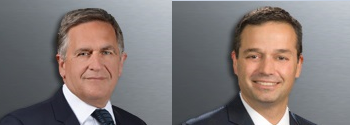By Mark Leonardo and Alex Carter-Silk, Brown Rudnick

First impressions are everything, and nowhere does this statement ring more true than in the world of high-end retail.
The following considerations will help retailers entering new global markets make the biggest splash possible, without exposing themselves to needless legal risk.
Do Your Homework
The most important first step in entering a new market is securing the appropriate licenses to operate in your host country. Bringing in local legal counsel from the beginning will ensure you establish the most appropriate corporate structure and efficiently obtain the proper licenses so you can focus your attention on opening your doors.
In the U.S., for example, new entrants commonly confuse trademarks, which are used to distinguish products, and service marks, which are used to differentiate a company’s services from competitors. Local counsel will help you navigate confusing applications and establish your business right from the start.
Be strategic when establishing your identity. Local lawyers, fluent in the local culture, can help you plan for any possible scenarios or contexts that could create obstacles in building your brand in a new market before you establish a brand identity.
For example, you may think you have a great brand name, but does it translate outside of your initial country? Learn from the ill-fated marketing of the Chevy Nova in Latin America (Nova translates to “doesn’t go” in Spanish), and research negative connotations and pronunciations in other languages.
Build Your Brand
While selling a great product and providing great service are the best ways to generate goodwill among consumers, you want to hit the ground running with a strong identity when expanding to a new market. Strive to be unique right from the start and avoid adopting a look and feel that could be confused with other established brands.
Make sure your brand, logo and color schemes are available and not too similar to other well-known brands in the market. Don’t waste time and money building a brand that is weak, infringes the rights of others or brings clumsy or tone-deaf messaging that won’t resonate with a local audience. Rather, invest the necessary time and money for proper research in the beginning to avoid the need for future rebranding.
Carefully review all registrations to ensure your brand, logo, slogans and other assets are protected. Knock-offs can dilute the strength of your brand, so monitor for copyists trying to get a “free ride” off the goodwill generated by your company.
Locate And Promote Your Brand
As you scout new locations for your company, learn as much as you can about the destination and local branding. Will you be around other non-competing brands? What are the regulations on how property owners can promote in your area? Can you mitigate risk to your brand by having stores and trading companies as licensees?
Consider bringing in local intellectual property, real estate and other counsel to help navigate the nuances of your target market.
Hire Holistically
Expanding to a new market is a challenge and it can be difficult to always think two steps ahead.
Working with experienced local real estate attorneys will ensure your leases are in order and can help you secure proper intellectual property counsel to oversee the patents, copyrights, domain names and media protection.
Remember, when it comes to branding you only get one chance to establish yourself on your clientele’s radar, so it’s important to set yourself up for success.
Alexander Carter-Silk is a Partner and Head of European Intellectual Property of Brown Rudnick LLP. He resolves complex commercial disputes, negotiates and advises on closure of complex commercial agreements as a trusted advisor. His clients encompass a wide variety of technologies and market sectors, public companies, entrepreneurs, family offices, celebrities, politicians, government, digital technologies, software, life-science, insurers, manufacturing, FINTECH FMCG digital and luxury brands, creative industries, fashion, data, Internet of Things, AI and digital media. Mark Leonardo is a Partner in the Intellectual Property practice of Brown Rudnick LLP. His practice encompasses all areas of intellectual property, including commercial exploitation and management of patent portfolios, patent and trademark procurement, and opinion counseling on complex legal and technical issues. He assists clients in developing comprehensive and strategic patent portfolios that maximize a company’s competitive advantage.






